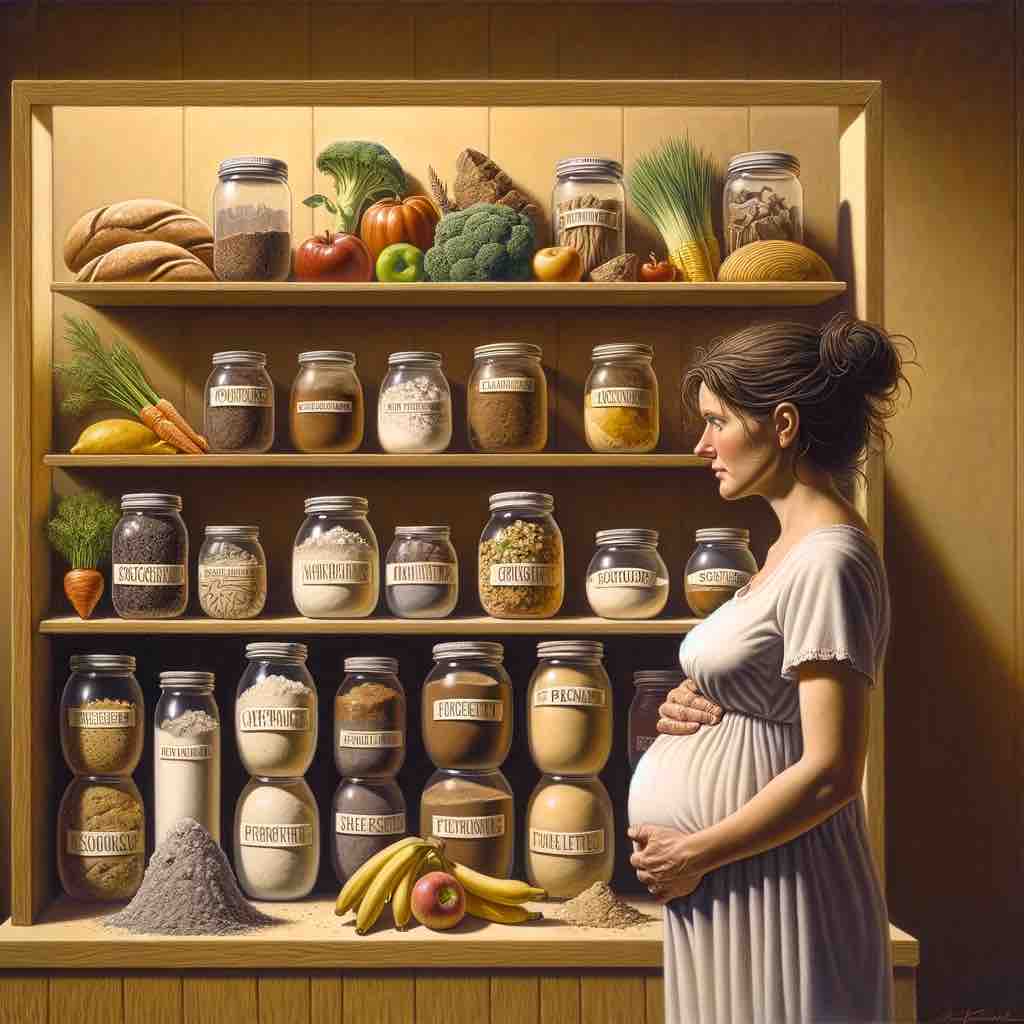
Introduction
Hey there, expectant moms! Welcome to the fiery club of pregnancy heartburn. It’s like your little bundle of joy is throwing a bonfire party in your chest. But fear not! This guide will be your fire extinguisher, helping you douse those flames and enjoy your pregnancy with one less worry.
Why Does Your Chest Feel Like a BBQ Grill?
Heartburn during pregnancy feels like an unwelcome guest. More than half of you will experience this, especially during the third trimester (Cleveland Clinic). Those pesky pregnancy hormones, especially progesterone, relax your lower esophageal sphincter (LES), making it easier for stomach acid to make an unwelcome appearance in your esophagus. Plus, your growing baby pushing against your stomach? That’s like adding fuel to the fire.
Dousing the Flames: Lifestyle and Diet Hacks
- Eat Like a Bird, Not a Wolf: Small, frequent meals over three square ones can keep heartburn at bay. Less food at a time equals less pressure on your stomach.
- The Slow Food Movement: Eating too quickly can invite heartburn. Take your time and savor your meals.
- Farewell to Fire Starters: Spicy, greasy, and acidic foods? Let’s avoid them. Also, sadly, chocolate, caffeine, and alcohol might have to be on your ‘break-up’ list for now (NHS).
- Liquid Logic: Drinking a lot during meals can fill up your stomach, pushing acids upward. Hydrate between meals instead.
- Elevate and Meditate: When it’s bedtime, prop up your head with pillows. This gravity trick keeps the acids where they belong – in your stomach.
- Smoke and Booze are Bad News: Both are heartburn enhancers and harmful to your baby.
Call in the Cavalry: Safe Medications
When lifestyle changes aren’t enough, bring in the antacids like Tums® or Maalox®. But, consult your doctor first, as some contain ingredients not ideal during pregnancy (NHS, Cleveland Clinic). If the inferno rages on, your doctor might prescribe medication like H2-blockers, which are generally safe during pregnancy, especially in the second and third trimesters (Johns Hopkins Medicine).
When to Ring the Alarm Bell
If your heartburn turns into a fire you can’t control, or if you experience symptoms like difficulty swallowing, persistent cough, or severe discomfort, it’s time to consult your healthcare provider. It’s crucial to ensure these aren’t signs of a more serious condition.
The Silver Lining
Despite the discomfort, the good news is that heartburn usually ends with the birth of your baby. Think of it as a temporary hurdle in your incredible journey of bringing a new life into this world.
Wrapping It Up
There you have it, moms-to-be – your comprehensive guide to tackling pregnancy heartburn. Remember, every pregnancy is as unique as the baby you’re carrying. While these tips can be lifesavers, your healthcare provider is your best ally in this fiery battle. Here’s to a healthier, heartburn-free pregnancy journey!
FAQs on Heartburn During Pregnancy
- Is heartburn a sign of pregnancy?
- Yes, heartburn can be an early symptom of pregnancy due to hormonal changes and physical shifts in your body.
- Why does heartburn typically increase during the third trimester?
- During the third trimester, the growing uterus exerts more pressure on the stomach, leading to more frequent occurrences of heartburn.
- Can certain foods exacerbate heartburn during pregnancy?
- Indeed, spicy, greasy, fatty foods, and certain beverages like coffee and carbonated drinks can worsen heartburn.
- Are there any safe home remedies for heartburn during pregnancy?
- Yes, eating small, frequent meals, sipping on milk, or having yogurt can help. Also, maintaining an upright posture after meals is beneficial.
- Is it safe to take over-the-counter antacids during pregnancy?
- Generally, yes. Antacids like Tums are often safe, but it’s crucial to consult your healthcare provider first.
- Can changing my sleeping position help with pregnancy heartburn?
- Yes, elevating your head while sleeping and avoiding lying down immediately after meals can reduce heartburn.
- When should I consult a doctor for my heartburn during pregnancy?
- If you experience severe or persistent heartburn, or if you have difficulty swallowing, it’s important to seek medical advice.
- Does drinking water help with heartburn during pregnancy?
- Drinking water can help, but it’s best consumed between meals rather than with meals to avoid increasing stomach volume.
- Can stress contribute to heartburn during pregnancy?
- Yes, stress can exacerbate heartburn, so managing stress through relaxation techniques can be helpful.
- Will my heartburn go away after I give birth?
- In most cases, yes. Pregnancy-induced heartburn typically resolves after the birth of the baby as the body returns to its nonpregnant state.
Blog Tags for the Post
pregnancy, heartburn, maternal health, antacids, diet and pregnancy, third trimester, natural remedies, gastroesophageal reflux, hormonal changes, stress management











